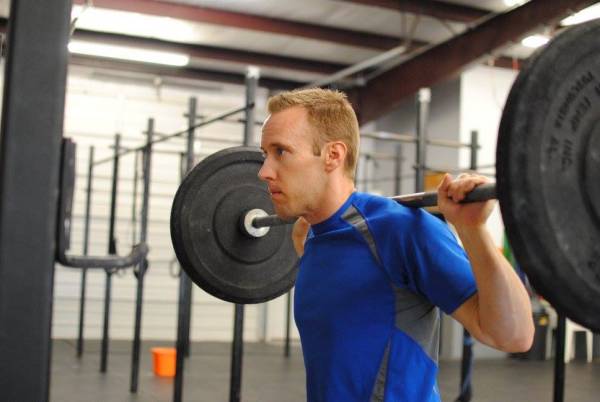I turned thirty in April. While I’m far from old, I can feel the difference in my body compared to ten years ago. Some joints are achier. I stay hurt longer. Weight comes off more slowly. Hardly insurmountable obstacles, but they’re there. But despite the noticeable (and annoying) changes, I’m in better shape now than I was ten years ago – thanks to a little perspective and a lot of experience.
Despite some of the negative changes, being thirty is pretty awesome so far.
One of the biggest problems with young athletes is that youth is basically magic. You can walk into a gym, swing a few weights around, and as long as you use a heavy enough weight and something somewhat resembling technique, you’ll probably make progress. Some kids don’t even need that much. It’s almost like they can look at the weights threateningly and add pounds to their bench press.
The problem, of course, is that habits you forge while you’re young will probably stay with you into your older years. In this article I’m going to talk about all the dumb shit I did in my twenties that I would have been better off without.
Pretending to Train Like an Elite Athlete
I’m not a natural athlete. Any athletic accomplishments I have to my name were achieved through cleverness and hard work, not a near bottomless pit of undifferentiated athleticism. Despite this, when I was a twenty-something, every time I saw a new workout plan for some professional athlete I had to try it.
Program hopping is bad enough. Program hopping because a plan that was never meant for you didn’t help you achieve the results it wasn’t designed for is an altogether deeper level of youth-induced silliness.
“The program an Olympic gold medalist is following now is not the program he or she followed fifteen or twenty years ago when first starting. If you’ve only been lifting for a few months, following the program Kendrick Farris is using is completely inappropriate.”
First off, it’s unlikely you’d ever come across the actual training program used by a celebrity or professional athlete unless you’re on a first-name basis with the coach. The stuff that’s disseminated through the media is usually either watered down or lacking in context. A program is one piece of the puzzle. Pros usually have access to recovery methods and nutrition well beyond the means of the average trainee.
There’s also another factor most people miss, particularly where professional athletes are concerned. The program an Olympic gold medalist is following now is not the program he or she followed fifteen or twenty years ago when first starting. If you’ve only been lifting for a few months, following the program Kendrick Farris is using is completely inappropriate. Some people find this offensive, as if assuming you can do what one of the best lifters in the world can do when you’ve only got a few months under your belt isn’t. Respect the process. The process is everything.

I’m learning to respect the process and not to rush things.
Believing I Was Invincible
Sometimes I go back and forth on this. I firmly believe most training-related injuries are avoidable with a bit of self-awareness and basic know-how. I honestly think the reason most people get hurt isn’t because of biomechanics or loading schemes. Far as I can tell, most people who get hurt simply aren’t trying to avoid it.
“Now that I’m in my thirties, minor issues definitely take longer to resolve than they did a few years ago, but overall I have far less pain than I did in my twenties.”
The reality of injury is that most of the time people don’t care about getting hurt until they already are. To be fair, a lot of the knowledge I now possess was the direct result of one problem or another. Injury can be a great teacher, but looking back at the years of good training I missed out on due to a battery of nagging injuries, I wish I’d cared more about prevention.
Now that I’m in my thirties, minor issues definitely take longer to resolve than they did a few years ago, but overall I have far less pain than I did in my twenties. Frankly, that’s kind of embarrassing. Shame on you twenty-year-old, Bob. Shame.
Not Paying Attention to Basic Maintenance
A week or so ago I stumbled across a thread on a fitness forum that started with a post asking, “How important is sleep, really?” The discussion contained therein was equal parts frustrating and horrifying.
The majority of posts were arguing or claiming that as long as you’re not tired, sleep isn’t that important. I pointed out how integral sleep is in terms of overall recovery and regulating hormone production and was immediately met by angry tirades claiming, “Whatever, bro. I can sleep an hour a night and I feel fine.” Sigh.
I get it. When I was in my early to mid twenties I used to work eleven hours straight, train my ass off, and then party all night for days on end. I, too, felt fine at the time. The issue really isn’t how you feel – it’s all of the progress you’re missing out on. I’m hardly advocating the life of a monk, but if you’re on day three of a Netflix-and-pizza bender, maybe go to sleep a little early and trade that fourth slice for a couple glasses of water.

Pizza and Netflix are great, but so is sleep.
My sleeping, eating, and drinking habits were less than perfect through my twenties. I made significant progress in my training, but when I think back I have to shake my head. One of the most profound improvements to my quality of life was the result of forcing myself to sleep eight hours a night. So simple it borders on stupid – but ask yourself, when was the last time you got a solid eight hours?
Prioritizing One Aspect of Fitness at the Expense of All Others
Balance has never been a strength of mine. I’m good at putting everything I have into one thing and doing it the best I possibly can. While this approach has its benefits, in terms of fitness it means that throughout many of my younger years I was playing tug of war with my physical preparation.
“One of the biggest problems with young athletes is that youth is basically magic. You can walk into a gym, swing a few weights around, and as long as you use a heavy enough weight and something somewhat resembling technique, you’ll probably make progress.”
I would get really strong and then stop lifting and do only cardio or conditioning. I would get really ripped and then stop running to focus on lifting again (because everyone knows running kills gainz #science). Again, I’m happy with where I am currently, but when I think of where I could be if I had held onto all the progress I’d made it makes me a little sad.
Not Eating Carbs
My time in undergrad was probably the height of the carb-a-phobic craze. For years, I avoided rice, bread, and anything even remotely processed because I knew it was “the devil” and would probably murder my soul. I looked good and felt all right, but again, hindsight is twenty-twenty.
I hit a terrible plateau in my late twenties. I was lethargic and all my lifts and times stalled hard. Then I ate a sandwich and my deadlift went up by a hundred pounds. Okay, I’m exaggerating, but all jokes aside I added a lot of weight to all of my lifts simply by adding carbs back into my diet.

Sometimes you just need to eat a sandwich.
What’s on Your List?
The list goes on. Avoiding steady-state cardio. Drinking too much coffee and not enough water. Not going to the doctor when I was sick or concerned about an injury. None of these mistakes were egregious when taken on their own, but the sum was significant.
It’s easy to get away with bad habits when you’re young, but eventually they’re going to catch up to you. So, what have you been getting away with lately?
More Like This:
- The Gifts of Being Forty-Five
- What I Learned From Deadlifting 500 Pounds
- A Simple 4-Step Mobility System for Every Lifter
- New on Breaking Muscle Today
Photos 1, 3, and 4 courtesy of Shutterstock.
Photo 2 courtesy of CrossFit Impulse.






